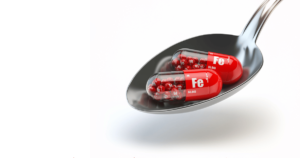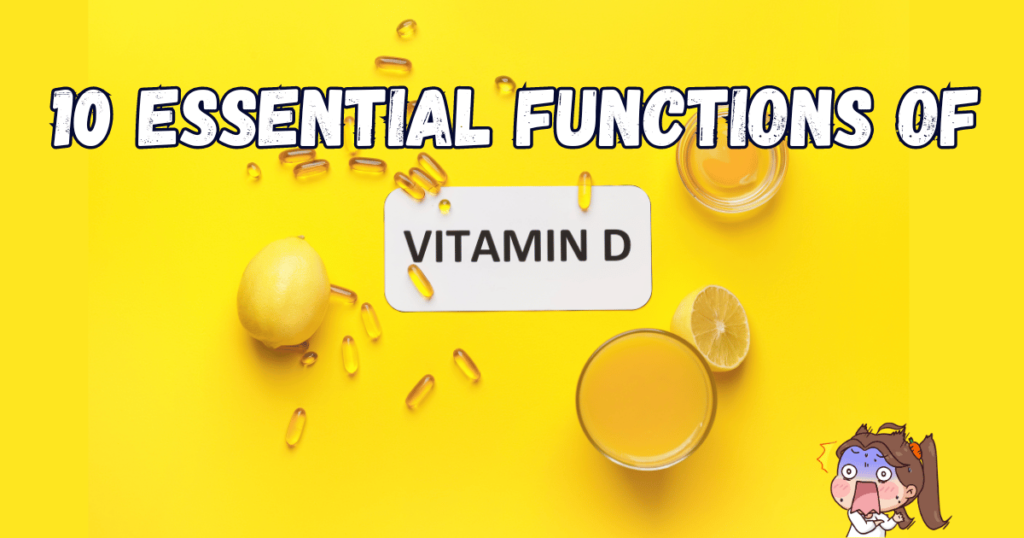Introduction

Is it Necessary to Take Iron Supplements for Anemia Prevention? Anemia, characterized by a deficiency of red blood cells or a lack of hemoglobin, can lead to fatigue, weakness, and impaired cognitive function. Iron deficiency anemia is the most common type and often stems from inadequate dietary intake or absorption issues. In the pursuit of optimal health, the question arises: Is it necessary to take iron supplements for anemia prevention? In this article, we’ll explore the intricacies of iron supplementation, shedding light on when it’s essential and offering guidance on maintaining iron levels for overall well-being.
The Role of Iron in the Body
Iron is an essential mineral that plays several critical roles in the body, making it vital for overall health and well-being. Here are some of the key functions of iron in the human body:
- Oxygen Transport: Iron is a key component of hemoglobin, the protein in red blood cells responsible for transporting oxygen from the lungs to the rest of the body. Without sufficient iron, the body cannot produce enough healthy red blood cells, leading to a condition known as iron deficiency anemia.
- Muscle Function: Iron is also part of myoglobin, a protein that helps provide oxygen to muscles. This is crucial for muscle metabolism and healthy muscle function.
- Energy Metabolism: Iron plays a role in the conversion of blood sugar to energy. It’s a component of various enzymes involved in energy production, making it essential for maintaining energy levels and proper metabolism.
- Enzyme Functions: Iron is a key element in various enzymatic reactions in the body, including those involved in the synthesis of DNA and the metabolism of drugs and toxins in the liver.
- Brain Function: Adequate iron levels are essential for cognitive function, including concentration, memory, and learning. This is because iron is involved in neurotransmitter synthesis, including dopamine and serotonin, which are crucial for brain function.
- Immune System: Iron is important for a healthy immune system. It is involved in the growth and maturation of immune cells, especially lymphocytes, which help the body to fight off infections.
- Regulation of Body Temperature: Iron plays a role in regulating body temperature, ensuring that it stays within a range that allows enzyme systems to function optimally.
Iron Deficiency and Health Risks
Iron deficiency is one of the most common nutritional deficiencies worldwide and can lead to anemia, characterized by symptoms like fatigue, weakness, dizziness, and shortness of breath. In children, iron deficiency can affect growth and development.
Sources of Iron
Iron is found in a variety of foods, making it possible to obtain it from a balanced diet. There are two types of dietary iron: heme iron and non-heme iron.
- Heme Iron: This type is found in animal products and is easily absorbed by the body. Sources include red meat, poultry, and fish.
- Non-Heme Iron: Found in plant-based foods, this type of iron is not as easily absorbed. Sources include lentils, beans, fortified cereals, whole grains, and leafy green vegetables.
To improve the absorption of non-heme iron, it’s beneficial to consume vitamin C-rich foods alongside iron-rich plant foods. Conversely, certain substances like phytates, found in grains and legumes, and tannins, found in tea and coffee, can inhibit iron absorption.
Supplementation and Overload
In cases where dietary intake is insufficient, iron supplements may be necessary, but they should be taken under medical supervision. Excessive iron intake can lead to iron overload, a condition that can cause damage to organs like the liver and heart.
Assessing Iron Requirements
While iron is crucial for overall health, it’s important to recognize that not everyone needs to take iron supplements. The necessity for supplementation depends on various factors, including age, gender, and individual health conditions.
- Pregnant Women: Pregnancy places increased demands on the body’s iron stores to support the growing fetus. Pregnant women are often advised to take iron supplements to prevent anemia and ensure optimal fetal development.
- Menstruating Women: Women of childbearing age, particularly those with heavy menstrual bleeding, are more prone to iron deficiency anemia. In these cases, iron supplementation may be recommended to maintain adequate iron levels.
- Infants and Children: Rapid growth and development during infancy and childhood require sufficient iron intake. Pediatricians often monitor iron levels and may recommend supplementation if dietary intake is insufficient.
- Individuals with Chronic Conditions: Certain medical conditions, such as gastrointestinal disorders or kidney disease, can impair iron absorption. In these cases, supplementation may be necessary to compensate for decreased absorption.
- Vegetarians and Vegans: Plant-based diets can be lower in heme iron, the form of iron found in animal products. While non-heme iron from plant sources is important, individuals following vegetarian or vegan diets may need to be vigilant about their iron intake and consider supplementation if needed.
Balanced Intake and Dietary Sources
For most individuals, obtaining iron through a balanced diet that includes a variety of iron-rich foods is often sufficient for maintaining healthy iron levels. Red meat, poultry, fish, legumes, tofu, and fortified cereals are excellent dietary sources of iron. Pairing these foods with vitamin C-rich options, like citrus fruits and vegetables, can enhance iron absorption.
The Importance of Professional Guidance
Before starting any iron supplementation regimen, it’s crucial to consult with a healthcare provider or registered dietitian. They can assess your specific needs, conduct necessary tests to determine iron levels, and provide personalized recommendations tailored to your health status and lifestyle.
Conclusion
While iron supplements can be a valuable tool in preventing and treating anemia, they are not universally necessary for everyone. Understanding your individual iron needs and incorporating iron-rich foods into your diet can go a long way in maintaining optimal iron levels and supporting overall well-being. With the guidance of a healthcare professional, you can navigate the path to balanced iron intake and embrace a healthier, more vibrant you.
check this out :Top 10 Worst Breakfast Foods to Avoid in the Morning for a Healthy Start



